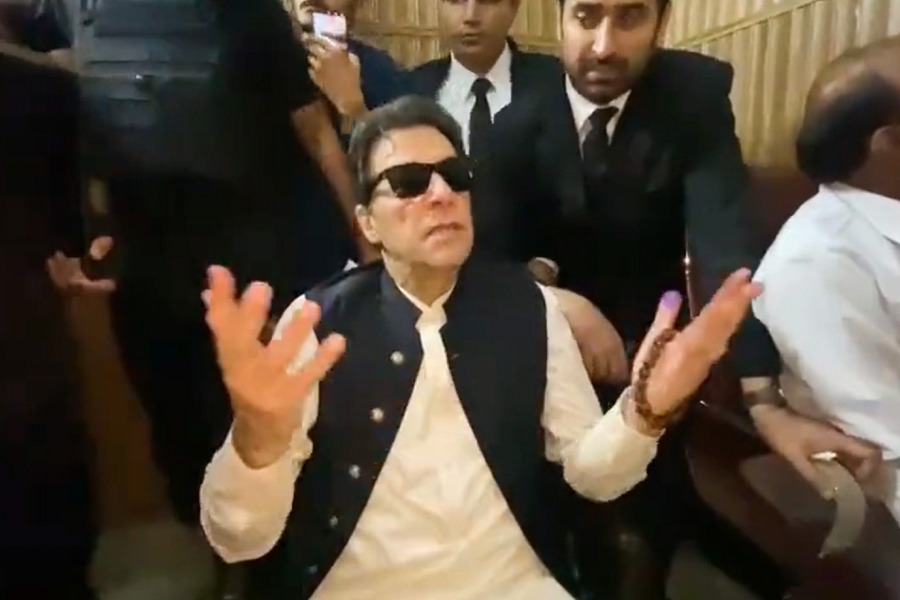The Islamabad High Court on Wednesday will hear the bail plea of former Pakistan prime minister Imran Khan in the Al Qadir Trust corruption case, as his previous bail has expired.
On May 12, the court issued a directive prohibiting authorities from arresting Pakistan Tehreek-e-Insaf (PTI) party chief in various cases, including undisclosed ones, registered throughout the country until May 15.
In the subsequent hearing, the court further extended the restriction on the arrest until May 31, the Dawn newspaper reported.
The court will also hear two additional bail petitions of the former prime minister, concerning cases pertaining to a violation of section 144 during a rally held in Islamabad to show support for the judiciary, as well as the incidents of violence that occurred on May 9.
Later on Wednesday, an accountability court will take up the bail plea of Imran Khan’s wife, Bushra Bibi, in the Al Qadir Trust case.
As Khan is facing over 100 cases, Bushra is nominated in two cases -- Toshakhana (gifts) and the Al-Qadir Trust case.
The Al-Qadir Trust case is about the setting up of Al-Qadir University for Sufism in the 2019 Sohawa area of Jhelum district of Punjab.
The arrest of Khan on May 9 by the paramilitary Pakistan Rangers at the IHC premises triggered unrest in Pakistan. For the first time in Pakistan's history, the protesters stormed the army headquarters (GHQ) in Rawalpindi and also torched the Corps Commander House in Lahore.
Police put the death toll in violent clashes to 10 while Khan's party claims 40 of its workers lost their lives in the firing by security personnel.
Khan was ousted from power in April last year after losing a no-confidence vote in his leadership, which he alleged was part of a US-led conspiracy targeting him because of his independent foreign policy decisions on Russia, China and Afghanistan.
Except for the headline, this story has not been edited by The Telegraph Online staff and has been published from a syndicated feed.











